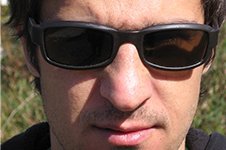Search
To search for an exact match, type the word or phrase you want in quotation marks.
A*DESK has been offering since 2002 contents about criticism and contemporary art. A*DESK has become consolidated thanks to all those who have believed in the project, all those who have followed us, debating, participating and collaborating. Many people have collaborated with A*DESK, and continue to do so. Their efforts, knowledge and belief in the project are what make it grow internationally. At A*DESK we have also generated work for over one hundred professionals in culture, from small collaborations with reviews and classes, to more prolonged and intense collaborations.
At A*DESK we believe in the need for free and universal access to culture and knowledge. We want to carry on being independent, remaining open to more ideas and opinions. If you believe in A*DESK, we need your backing to be able to continue. You can now participate in the project by supporting it. You can choose how much you want to contribute to the project.
You can decide how much you want to bring to the project.

Socially. What’s going to be the best of 2014? Any possible response would elude a utopian optimism about the good things set to come. There’s been so much bad this 2013 that the simple wish for one’s desires to be fulfilled wouldn’t be enough to change anything. There’s an intersection between prospective science and the writing of scripts for films. The cutting moment for both is the “scenario”, the description of a possible situation in the near future. In his essay from 1998 “Should the Future Help the Past?” the artist Liam Gillick commented: “What’s the scenario? A constantly mutating sequence of possibilities. Add a morsel of difference and the results slip out of control, shift the location for action and everything is different”. It’s the logic of What if? the dynamics of what would happen if?
Prospective science isn’t, however, as popular as Hollywood films are. Governments, on their part, endeavour to mitigate the effects of the future. There’s constant talk of the future, about the economic crisis and they tell us: 2014 will be better. Do we have to take a leap of faith? On the other hand, Myths of the Near Future is a book by J.G. Ballard and a great title for the current times when what prevails is the present, a so-called “presentism” and with it the total difficulty of imagining tomorrow. In times of bonanza they called this present “living day to day”. Faced with this “presentism”, work by people like Ballard ends up being of vital importance, authors of soft-core science fiction set not in a galactic future so much as one that is proximate, close and strange at the same time. Another artefact to consider here is Minority Report, the film by Steven Spielberg from 2002, based on a story by Philip K. Dick: minds full of extrasensory perceptions capable of having premonitions, precognitions and visions of the future. Artists of anticipation. Anticipation. A beautiful and mysterious word.
In art. Without Documenta in Kassel and the Venice Biennale everything points to the Biennale of Sao Paulo in Brazil. Here, however, it’s hard to identify the best of the year beyond the medium of the exhibition. I remember a decade ago when there was continuous talk of “alternatives to the exhibition” or of “exhibitions without exhibitions”. Now we are incapable of listing or remembering a talk, a performance, a concert or an art gathering. We keep lists and immediately forget them. What we need are alternatives to the present, and also perhaps alternatives to the exhibition.

Peio Aguirre writes about art, film, music, theory, architecture and politics, amongst other subjects. The genres he works in are the essay and meta-commentary, a hybrid space that fuses disciplines on a higher level of interpretation. He also (occasionally) curates and performs other tasks. He writes on the blog “Crítica y metacomentario” (Criticism and metacommentary).
"A desk is a dangerous place from which to watch the world" (John Le Carré)